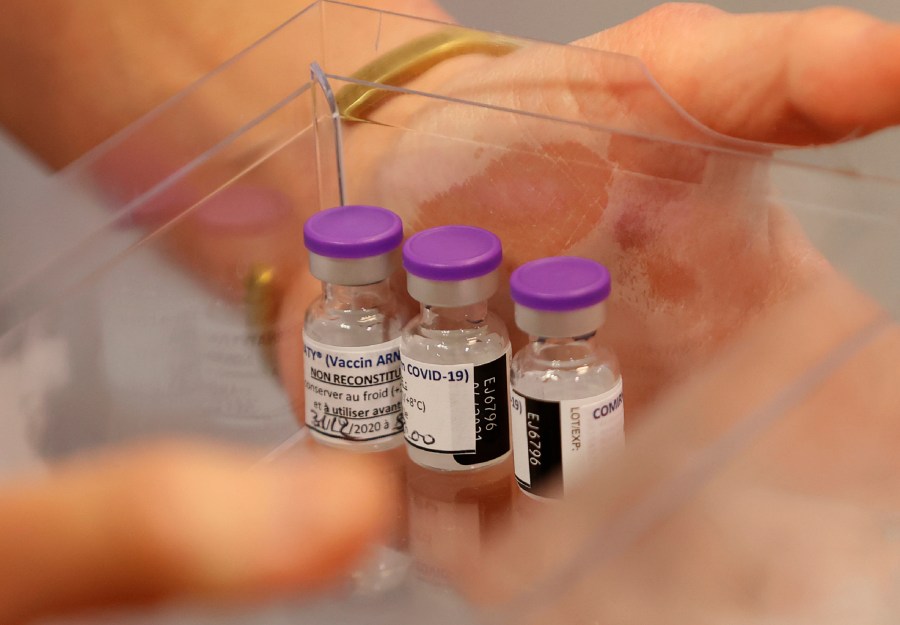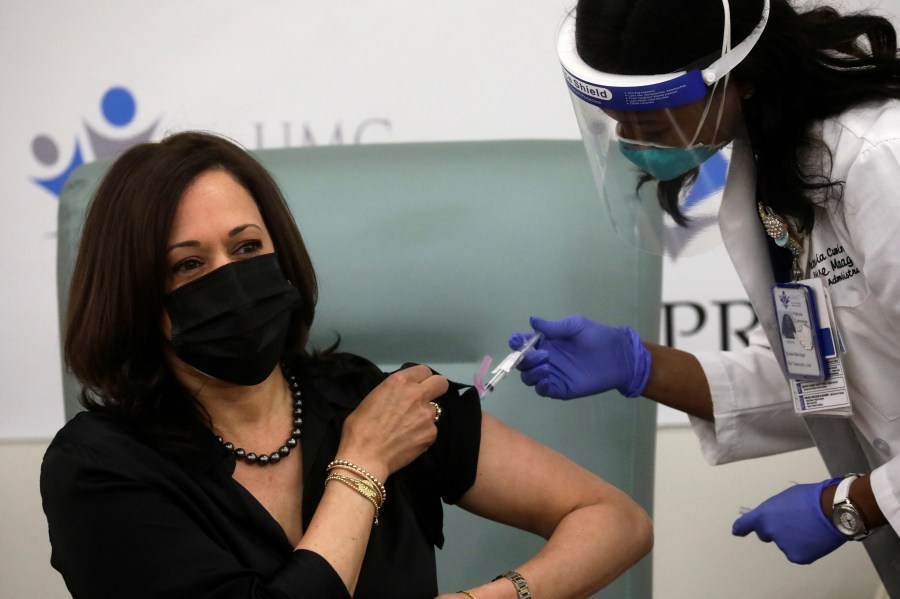PORTLAND, Ore. (KOIN) — The variant strain of COVID-19 first found in the UK and now in the US (as well as other countries) has prompted many questions from, well, everyone.
Dr. Steven Krager, the Deputy Health Officer in Clark County, spoke with KOIN 6 News and answered a series of questions about the new COVID strain. What follows is a lightly edited (for clarity) interview.
Jenny Young: Tell us what you know about this new variant?
Dr. Krager: This new variant was discovered in England in September, we didn’t know a whole lot about it back then but as they’ve watched it they started to realize it’s contributing a lot of the spread of COVID 19 in the UK.
Viruses mutate all the time so it’s not unheard of that, you know, a new kind of variation will emerge. But this one’s a little concerning because it seems to be more transmissible between people so it’s more easily passed. We don’t know that for sure but that’s kind of what early data is showing us.
And maybe that’s what contributed to the worsening outbreak in the UK, that they’ve had more of this type of coronavirus spreading around. What we don’t think it does is cause more severe disease or that it’s more likely to cause death, so I think that is some good news
We’ve found two cases in the US that I read about, one in California and one in Colorado.
I know we’ve taken some steps to try and slow the spread. People from the UK are required to get tested before coming to the United States now, Washington has had a 14-day quarantine in place for awhile now if you’re traveling from the UK, as well as asking that you get tested.
Those things are good but they’re not going to completely stop this from spreading. I would not be surprised if we find more cases throughout the United States over the next couple weeks. Probably it’s been spreading there for awhile and they probably just didn’t have a good handle of how much it was contributing
I think the other piece that makes it a little bit confusing is, you know, you find new variant but there’s hundreds right now and so finding one that you don’t know that it’s different until you watch it for a little while, and then realize, ‘Oh actually it seems to be spreading a little bit easier,’ and now it’s led to 60% of the cases in London.
I mean that’s a big problem. That’s definitely something we want to prevent from happening. I don’t think we’ll be able to prevent it completely. I think spread will happen of this new variant in the US. We already know that some spread has happened. But if we can prevent it from becoming that big of portion, I think that would be helpful
The less that this new variant spreads the better.
JY: Do the Pfizer & Moderna vaccines protect against the variant?

Dr. Krager: We do think the vaccine is going to be protective even with this new variant. We don’t know that for sure because we’re still gathering data, but the way the current vaccines work they produce a kind of variety of anti-bodies that even if there’s a slight change in one of them because of this new variant the rest of them should still protect us. That’s at least what the modeling shows us. We’re still putting that to test in the real world
There’s lots of people getting vaccinated in the UK right now and we’ll have some pretty good data soon.
The initial data right now is that the vaccine should still work so I’m pretty hopeful about that. Like I talked about earlier, viruses mutate, they change, the influenza virus changes all the time which is why we need a new one each year. But in most viruses it’s not quite as quick as the influenza virus in terms of how quickly they mutate.

This is a new coronavirus so there’s a lot of unknowns. But that’s kind of another hope is that it won’t mutate so quickly that we won’t be able to catch up to it with vaccines.
The whole issue with the Spanish Flu, 1918 flu, it was a very virulent, deadly type of influenza that we hadn’t seen in 100 years. We were concerned with H1N1 that is would be that type of really deadly type of flu. It didn’t end up being as deadly as the 1918 flu.
But that’s the concern you get, that mutation that. for whatever reason. causes more severe disease and then a terrible pandemic becomes worse.
All that to say, genetic sequencing is constantly happening and we’re watching to see what the behavior of those mutations show up at.
JY: Do people become infected quicker and stay infected longer?
Dr. Krager: I haven’t heard that. I did read one analysis that said it seemed like they had a higher viral load, so that means how many copies of the virus you have in your body. That could be leading to what is causing people to be more infectious, but it’s also possible those other things, you could be sicker longer and you infect more people, you could be slightly more symptomatic so you cough more.
JY: Have you heard it may be more infectious in children?
Dr. Krager: I haven’t read that but it’s certainly possible. I don’t have enough knowledge right now to speak to that but that is something we’ll have to keep an eye on obviously. Other coronaviruses children spread rather easily compared to this one
JY: Are you nervous it’s going to spread to the Northwest soon?
Dr. Krager: We wouldn’t be surprised if we see it soon, I think we’re nervous but also have this expectation that it might be here already circulating.
The other piece is that it’s not going to change what we tell people. It’s not going to change the behavior that we’re hoping from people. Our messaging is still the same. The same things that we’ve talked about are still going to work for this. We just might have to be a little more vigilant if it starts to circulate widespread.
It emphasizes how important the masking and distancing and avoiding indoor crowded spaces is, as well as getting vaccinated as quickly as possible, as soon as the vaccine is more widely available.
We’re still watching closely to see if this popped up in other places and we’ll see what happens.
